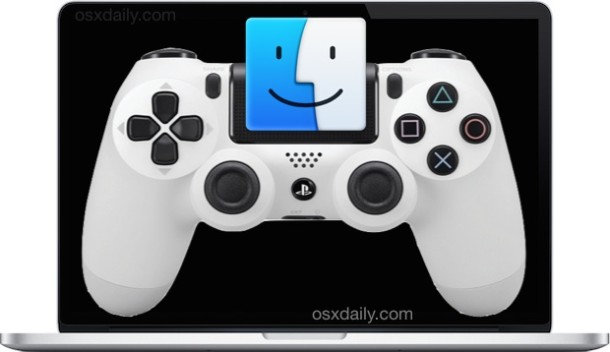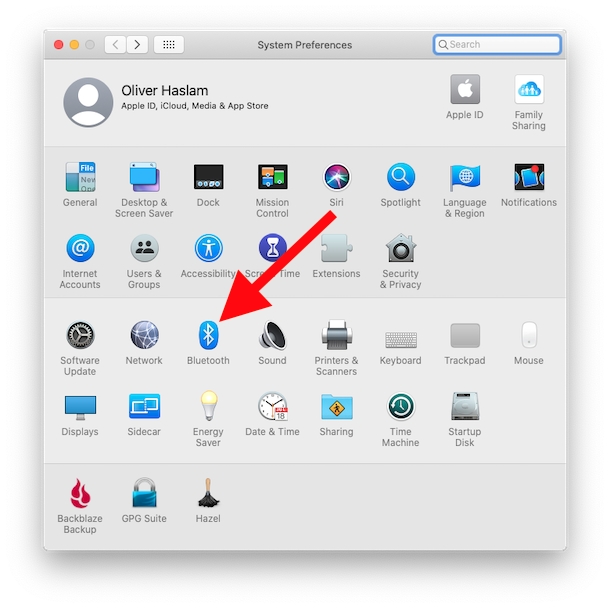How to Pair Playstation 4 Controller with macOS Ventura / Monterey / Big Sur / Catalina

Mac users can pair and use Playstation 4 controllers with their Mac, which makes for an excellent gaming experience.
The ability to pair PS4 controllers to the Mac has been around a while, but with MacOS Catalina 10.15 onward, it’s easier than before (you can pair Xbox One controllers to Mac now too just as easily).
Once you’ve paired your DualShock 4 controller with your Mac you’ll be able to enjoy games in a more familiar control scheme environment if you’re someone coming from console gaming. It’s also something that suits some games more than others, with racing games, shooters, adventure games, as such can be less fun when you’re using a keyboard. Controllers just feel better thanks to their analog controls. That, nobody can deny, and the Sony PlayStation 4 DualShock controller in particular is a very popular one. This tutorial is going to detail how to get a PS4 controller up and running on a Mac.
Assuming you already have a Sony DualShock 4 controller – if you don’t, they’re available almost anywhere these days on Amazon and elsewhere – pairing it with your Mac is super easy. And perhaps even way easier than you might expect.
How to Pair Playstation 4 Controller to Mac (macOS 13 Ventura, 12 Monterey, 11 Big Sur, 10.15 Catalina, and later)
To start, make sure that your controller is powered off.
- Put your DualShock 4 controller into pairing mode by pressing and holding the PS and Share buttons at the same time. The controller is in pairing mode once the light bar begins to flash.

- Click on the Apple icon in the menu bar and then click “System Preferences.”
- Click “Bluetooth.”

- After confirming that Bluetooth is enabled, click right-click the name of the controller you want to pair.
- Click “Connect” and your controller will automatically pair with your Mac.
Now that the PS4 controller is paired to the Mac, you are ready to use it to play games. Just launch your game of choice with controller support and start playing. Many popular Mac games support controllers, including many Apple Arcade titles, Fortnite, and much more.

It’s important to note that you can only pair controllers with one device at a time. That means any controller paired with your Mac will no longer be paired to any PS4, Apple TV, iPhone, or iPad that it may have previously been paired to. Thankfully, re-pairing a PS4 controller with those devices isn’t a difficult process and can be done when needed.
How to Unpair the PS4 Controller from Mac
If you later want to unpair your controller you can do so by right-clicking on its name in the Bluetooth area of System Preferences and then right-clicking it. Click “Unpair” to complete the process.
You shouldn’t need to unpair a controller just to pair it with another device (be it another Mac, iPhone, iPad, PS4, or otherwise), but if you’re having issues this can be a helpful troubleshooting step to try.
As mentioned before, other controllers can also be used on the Mac now too, including Xbox One.
If you’re using an older version of macOS prior to MacOS Catalina, don’t fret. You can still pair your controller with older Mac OS versions too, and it’s the same story if you’re using a PS3 controller, too.
Do you use a game controller with your Mac? What do you think of the experience? Share your thoughts in the comments below.




I tried this one, Dualshock can hardly be supported.
i’m curious how well the dualshock 4 controller works with game emulators.